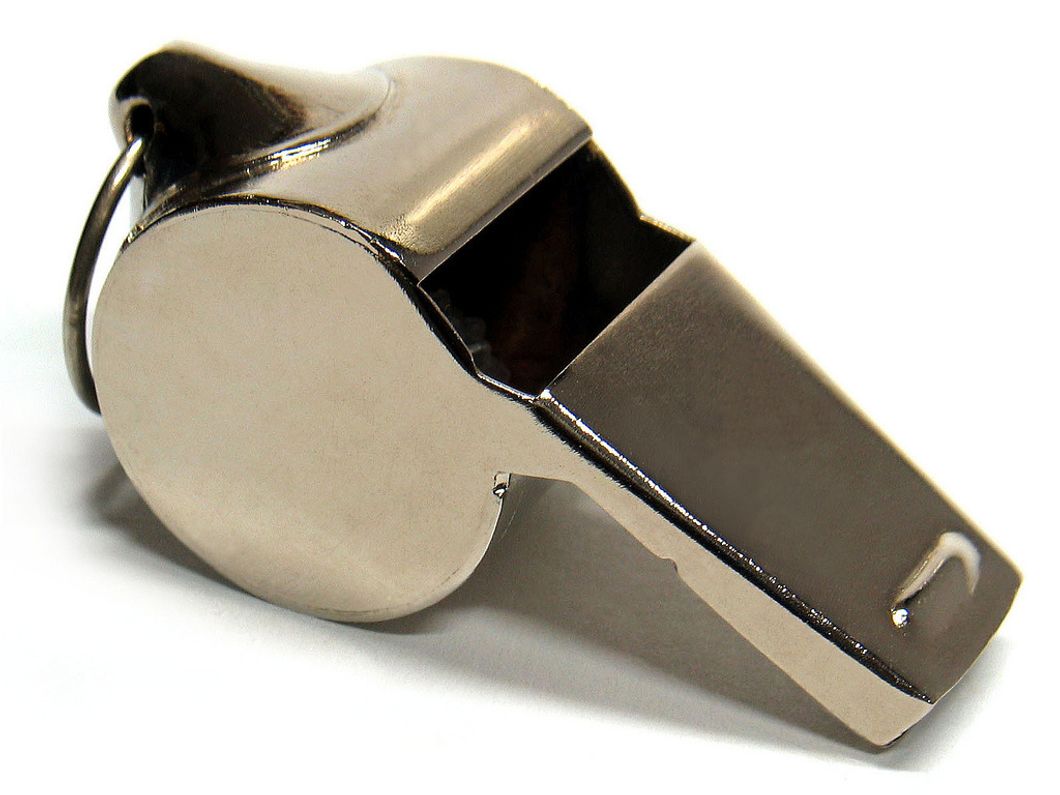It may not be a blockbuster, but The Insider – a 1999 movie based on real events starring Russell Crowe and Al Pacino – was a realistic and intimidating look at what happens when employees decide to "blow the whistle". It follows Wigand (Crowe) who comes out against the tobacco company he worked for and the resulting consequences of being a "whistleblower". The term refers to employees who publicly call out an organization for illegal or unethical practices. Sounds like we need more people in the world willing to stick up for what's right, right? Unfortunately, snitches get stitches.
When employees tarnish public image and cost profit, they are practically guaranteed to evoke a swift and negative reaction. Retaliation such as death threats, stalking, harassment, and character devaluation have occurred frequently enough that the government has actually created protections for whistleblowers. In The Insider, Wigand faced all of these retaliatory actions as well as personal strife between him and his family, leading us to wonder, "Could I blow the whistle if I needed to?"
It's important to note the movie, though regarded highly accurate, does show extreme lengths of retaliation. According to Tallahassee Employment Law Firm Friedman & Abrahamsen:
"Whistle-blower retaliation can include termination, demotion, reduction in pay and benefits, and other material changes in the employment relationship; often as a result of reporting or objecting to unlawful acts by an employer."
While less serious than death threats, typical retaliations such as termination and changes in employment relationship can permanently affect an employee's personal and professional life. Even when a company is clearly in the wrong and the employee was right to report them, other employers may not want to hire the whistleblower because it invites risk into their company. That's why it's important for employees to understand when blowing the whistle is acceptable and how to prepare appropriately.
When to Blow the Whistle
Before you become a vigilante against the corporate machine, ensure you have seriously considered your reasons for blowing the whistle. The issues need to be substantial, credible, and provable. This is a warning for would-be whistleblowers complaining about poor management, annoying tasks, and other comparatively trivial issues that can be handled internally. Blowing the whistle is a last resort – spurred by the drive to stop practices adversely affecting employees and/or customers.
If you feel conflicted about a situation and don't know how to proceed, then speak with someone you trust. Perspective can help see things from a different point of view. If you still feel conflicted or want to blow the whistle, the next step is seeking out a lawyer.
How to Prepare
Before galivanting into the world and blowing the whistle, find legal counsel. They will be able to advise you on the situation and whether you should continue forward. When dirt is revealed about an organization's practices, you can bet that your stance will need to be supported and justified in front of a judge. To build a winning case of any type, it is you and your attorney's responsibility to present evidence which is accurate and objective. Regardless of whether you reach court or not, your case must be credible enough that the employer will take you seriously.
When compiling your evidence, think about what may be asked for down to the most minute detail.
- Performance evaluations and a clean HR record to bolster your work ethic.
- Internal memos, documents, and emails that support your case.
- Once again, speak with your attorney or union representative to ensure you aren't using anything you may not have a right to use.
OSHA takes protecting whistleblowers seriously, and you can find more information online. They don't have to take any reported claims, but they will if they find it to be serious enough. At the end of the day, whistleblowing is not for calling out arrogant managers or for getting out of a job duty – it's for reporting illegal or unethical wrongdoing within an organization. Consider your reasons, talk to a friend, find a lawyer, compile your case, and blow the whistle.

















